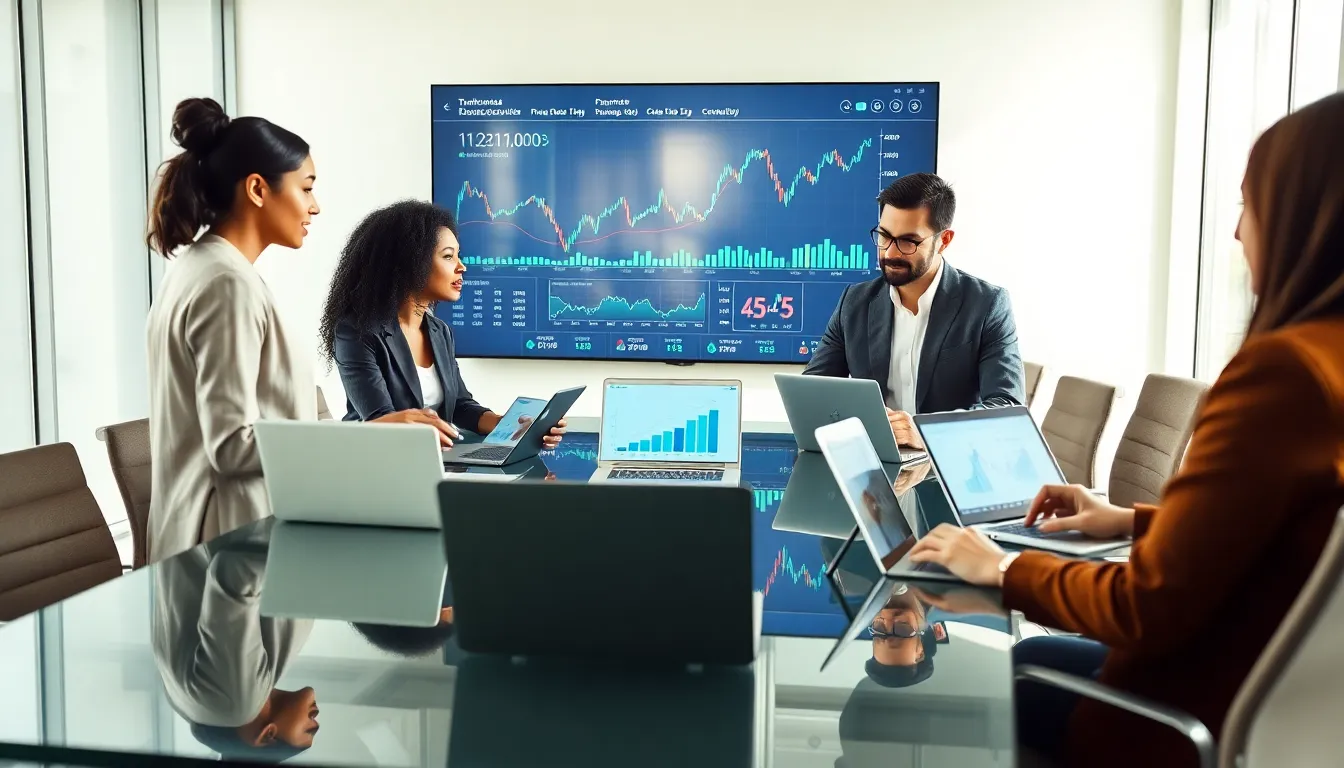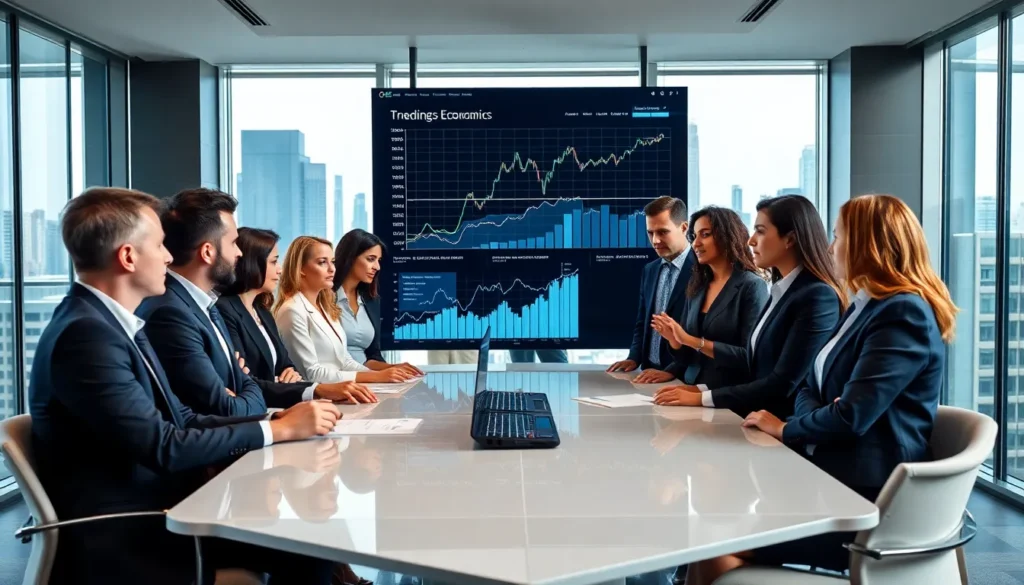Table of Contents
ToggleIn a world where trends can change faster than a social media feed refreshes, understanding trending economics is not just for the Wall Street elite. It’s just as crucial for folks on Main Street looking to navigate their financial futures. Today, the global economy feels like a rollercoaster ride, with twists, turns, and loop-de-loops that would make even the bravest thrill-seekers a bit queasy. But strap in: this is going to be an exhilarating journey through the trends shaping our lives. From technological advancements to the emergence of new markets, let’s investigate into the dynamics that define our economic landscape.
Overview of Trending Economics

Trending economics refers to the current shifts and movements in the global economy that are defining how we work, spend, and save. At its core, it’s about understanding how various forces, from geopolitical events to consumer behavior, are influencing economic dynamics. Today’s trends present unique challenges and opportunities, reshaping traditional economic principles and practices.
From inflation rates to labor market shifts, trending economics acts as a reflection of societal changes, adapting to both environmental and technological advancements. Businesses and individuals alike need to keep an eye on these trends to strategize effectively in a world that never stops evolving.
Key Factors Influencing Economic Trends
Several vital factors contribute to the trends we see shaping the economy today. Understanding them is crucial for predicting where things might head next.
Current Economic Trends to Watch
For instance, with the rise of remote work due to the pandemic, one trend that’s taken off is the shift towards digital nomadism. People no longer instantly need to settle down in one location for their jobs. This trend not only impacts real estate markets but also local economies that depend on traditional commuting patterns.
Technological Advancements and Their Impact
Next up, technological advancements are reshaping industries at lightning speed. The rise of artificial intelligence (AI) and automation is revolutionizing sectors from manufacturing to customer service. Companies are investing heavily in these technologies to boost efficiency, which can lead to both economic growth and job displacement. It’s a double-edged sword, while innovation drives progress, it also raises questions about workforce displacement.
Globalization and Economic Shifts
Finally, globalization continues to play a significant role in economic trends. Countries are more interconnected than ever, meaning that an economic downturn in one region can ripple across the globe. Supply chain issues during the pandemic highlighted just how fragile global trade can be, forcing many countries to reconsider their dependency on foreign markets. The current shifts present a vital opportunity for rethinking international economic relationships.
Sustainability in Modern Economics
As sustainability climbs further up the agenda, it is becoming an essential aspect of trending economics. Environmental concerns are pushing businesses and governments alike to adopt more sustainable practices.
Sustainable economics refers not only to green technologies but also incorporating social responsibility into business models. Today’s consumers prefer brands that exhibit a commitment to sustainability, which in turn influences market trends.
Also, initiatives aimed at reducing carbon footprints can transform entire industries, creating new economic models that favor sustainability over traditional growth metrics. As a result, this trend highlights the pressing need for responsible fiscal policies and investments in renewable resources.
This shift towards sustainability is not just a passing trend but a necessary evolution to future-proof our economies.
Emerging Markets and Economic Opportunities
Emerging markets may be the underdogs of the global economy, but they are quickly rising through the ranks, offering exciting opportunities for investment and growth. Countries like Vietnam, India, and Brazil are making headlines with their economic growth trajectories.
The Role of Governments and Policies
Government policies play an essential role in shaping these markets. By fostering business-friendly environments and implementing favorable trade agreements, these nations attract foreign investments that can propel their economies forward. Meanwhile, international investors can find lucrative opportunities, with potential for better returns compared to more developed markets.
As emerging markets continue to develop, they create new industries and push innovation, leading to a vibrant economic landscape that deserves a closer look.
Future Outlook and Predictions
Looking ahead, the future of trending economics is anything but dull. Analysts are closely watching factors like the ongoing impacts of climate change, the rise of digital currencies, and the increasing importance of data privacy regulations.
As technology permeates every aspect of business and consumer behavior, we can expect economic models to evolve rapidly. Remote work may become permanent for many sectors, drastically altering urban landscapes and commuting habits. Plus, the shift towards a circular economy, which emphasizes the reuse and recycling of resources, will change product life cycles and consumer habits.
All these factors combined indicate that the landscape of trending economics will continually evolve, driving innovation, investment, and changes in consumer behavior.




